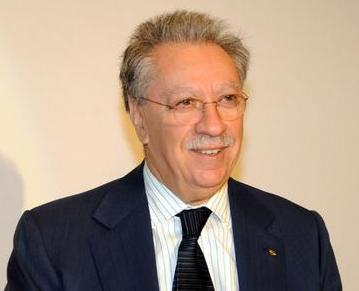Picture: www.aggelioforos.gr
The speech of President of Piraeus Bank, Michalis Salas, at the annual general meeting of shareholders, was about the transformation of Geniki Bank into a managing centre of subprime loans of the Group of Piraeus Bank. It also included a proposal for the merger of activities of Greek banks in the Balkans, assurances about the bank’s successful passing of the upcoming stress test, as well as assessments of the state of the Greek economy.
"We will proceed to the creation of a new structure that will have sufficient capital, and international partnerships for the proper administration of risky business loans, so that we can help companies deal with their problems and return to normal development," said Salas, speaking about Geniki Bank.
He stressed that if Geniki Bank starts dealing with this there will be an increase in the share capital by issuing participation rights for shareholders of Piraeus Bank and giving advantage to those who have covered 20% of the share capital increase.

Stress Test
In parallel, Salas expressed confidence that Piraeus Bank would pass the stress tests, which was requested by Greece's international creditors and will be carried out by the end of the year. Piraeus’s Core Tier 1 capital amounts to 14.5%, and that is the highest ratio among the four largest banks in the country, after the bank covered its capital needs last month which amounted to 7.3 billion euro, CEO of the bank Stavros Lekakos explained. "I'm sure that the stress tests will show that we do not need new capital," Salas told journalists after the meeting. In parallel, he predicted that 2015 will be a profitable year for the group of Piraeus Bank.
The Balkans
Salas repeated the proposal for a merger of Greek bank’s subsidiaries in the Balkans. According to him, this merger was also offered to his colleagues, and he expressed his belief that it would happen, stressing that Greek banks would have to make their presence more competitive and on a larger scale, so that there would be a financial benefit for Greece.
The economy
As for the Greek economy, Salas said that it needs liquidity, adding that the bank will focus on the financing of sectors that are associated with the production and substitution of exports rather than on consumption, which has decreased significantly because of the economic downturn.
"We hope that the development of the Greek economy will be positive, so that we, as a banking system, can meet three challenges. The first challenge is to provide liquidity to the market, the second is the restructuring of subprime lending and the third is the creation of competitive conditions, so that we can participate in the economic recovery with lower interest rates," said Salas. He stressed that there are entire sectors the future of which is threatened – shipping, for example.
Salas also presented the voluntary redundancy programme of Piraeus Bank. In order to encourage employees to leave voluntarily, they will be offered higher compensations. The goal is to dismiss between 1,800 and 2,000 employees, i.e. about 10% of the bank’s staff. In total, 25,000 employees work for the group, 18,000 of which in Greece.
This programme covers employees of the banking group and subsidiary banks in the country (Agricultural Bank ATE, Geniki Bank, Bank Millennium, Bank of Cyprus, Laiki Bank, and Hellenic Bank). The programme came into effect on 19 July and will run until 2 September. The amount of compensations will depend on the number of years of service of each employee, but in any case it will not be less than 8,000 euro. The highest compensations can reach 170,000 euro.
Employees who retire by 31 December 2013 will also be provided with an additional bonus, amounting to 8 salaries plus the compensation. Two salaries will be given for each minor child. The programme also provides for the retention of full medical care for two years after the employee has left the bank. Moreover, the conditions of mortgages and consumer loans that employees have taken out with promotional interest rates will remain.